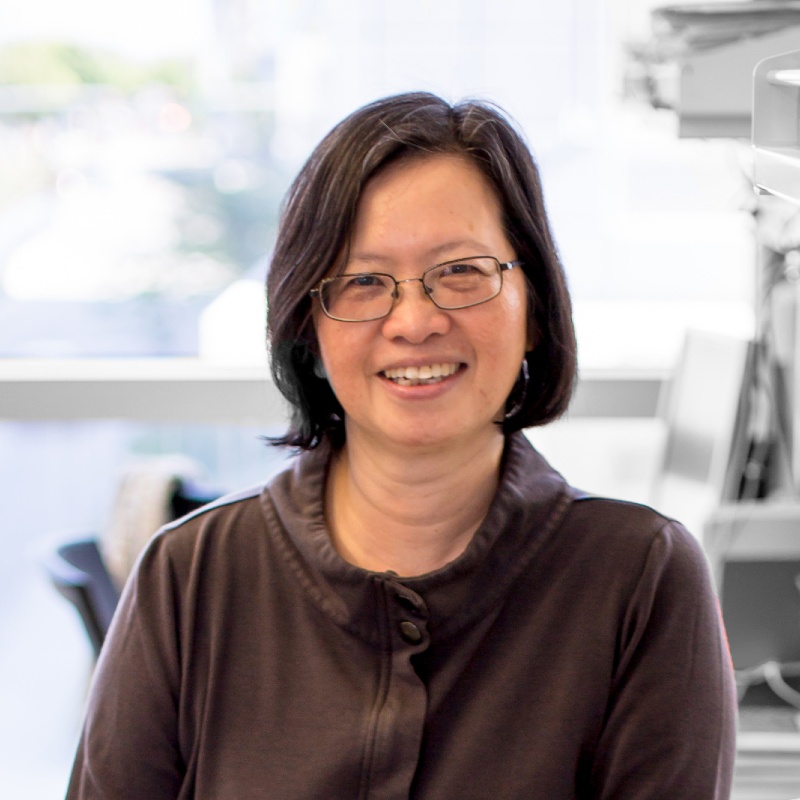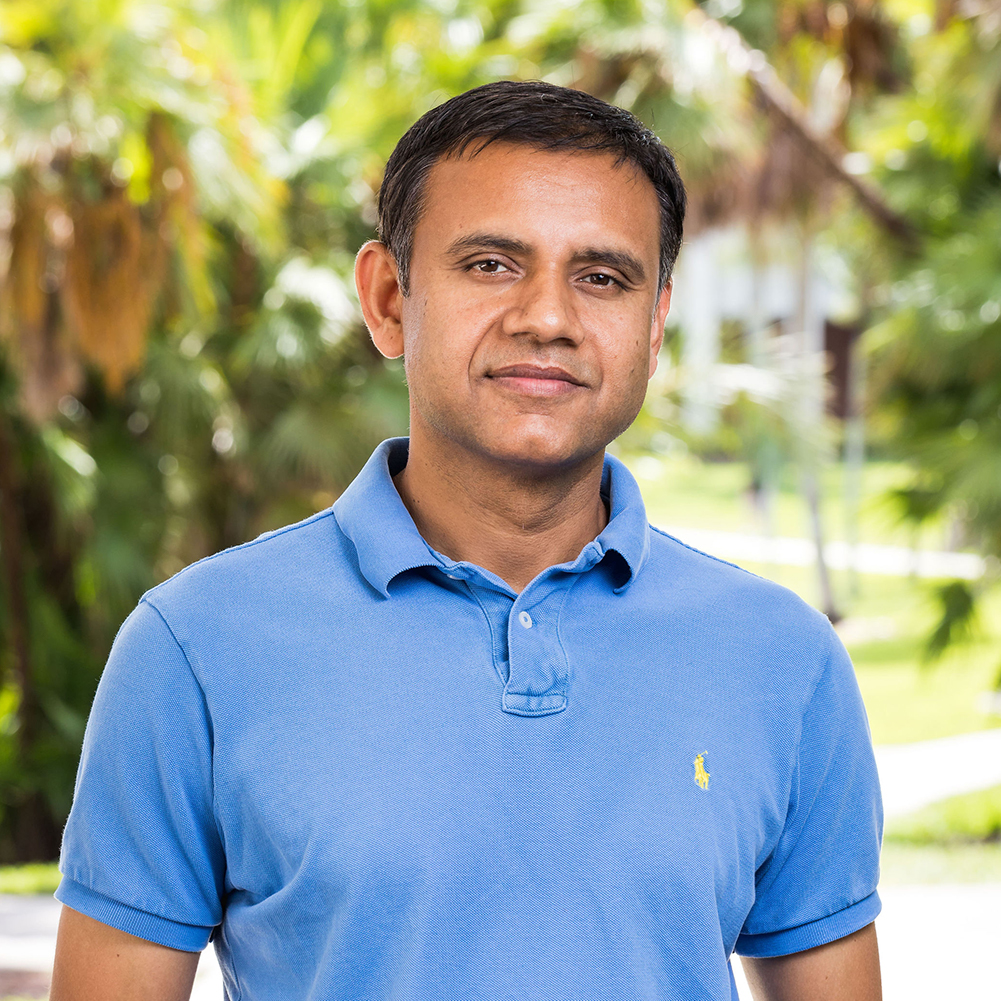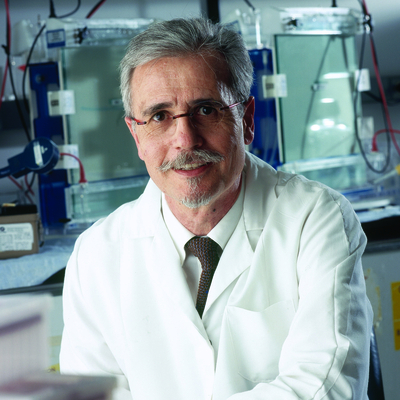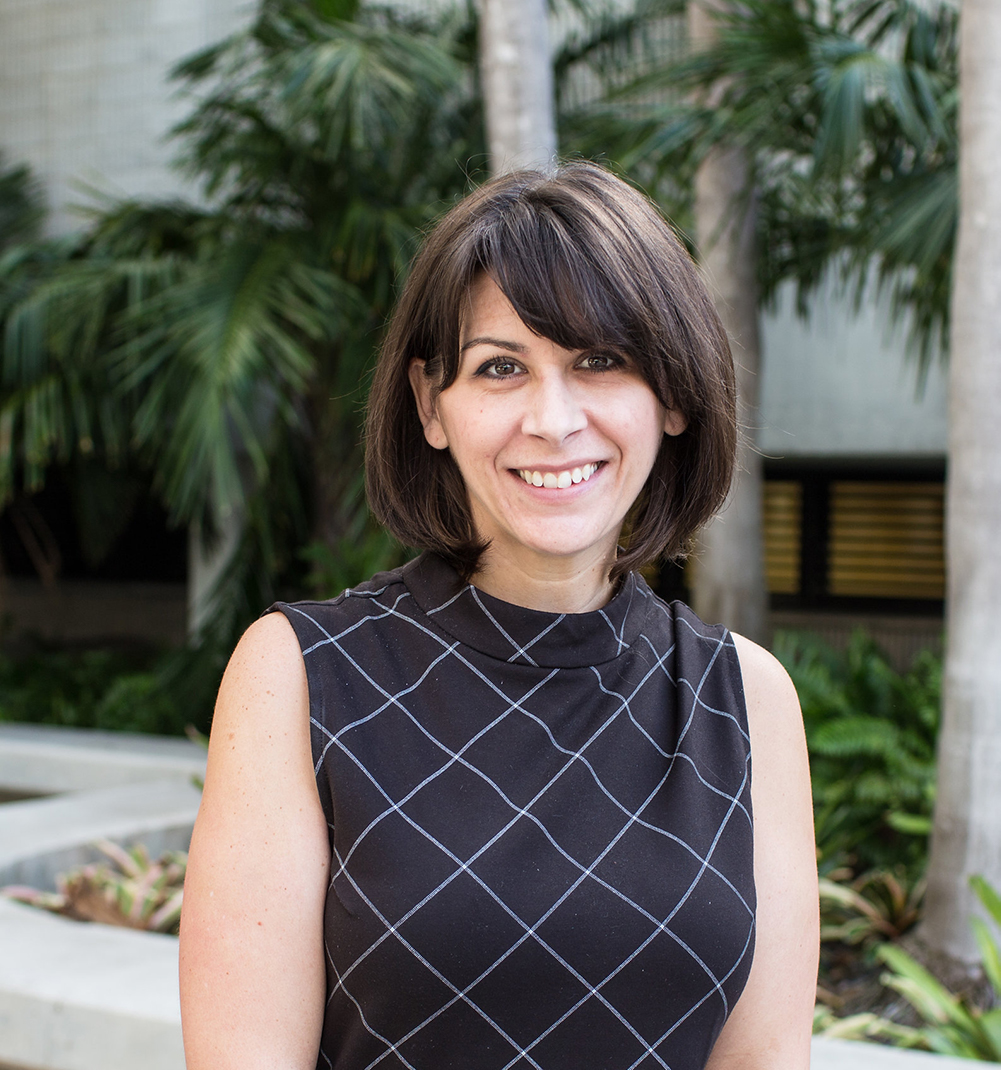The Biomolecular Sciences Institute has teamed up with the University of Texas Medical Branch and the National Cancer Institute to evaluate existing drugs as possible inhibitors for Topoisomerase III-ß as a broad spectrum host target.
Topoisomerase III-ß was recently identified as an enzyme coronaviruses and other RNA viruses require to replicate and spread infection in a person efficiently. Our scientists are searching for an inhibitor that can block Topoisomerase III-ß in an effort to slow the spread of infection and increase a person's chance of survival. Currently, there is no proven treatment for coronaviruses.
Using artificial intelligence and molecular modeling, our physicists are narrowing possible candidates among thousands of FDA-approved drugs. Our biochemists test the drugs to determine their potential as inhibitors. Selected drug candidates are then referred to the labs in Texas and Maryland to be tested on live cell cultures and viruses including COVID-19.
If successful, a Topoisomerase III-ß inhibitor combined with antiviral medication could reduce mortality from these deadly viruses. And because a Topoisomerase III-ß inhibitor would target a host factor, this approach has the potential to provide a long-term treatment solution even if new strains of coronavirus emerge in the future.
Team

Yuk-Ching Tse-Dinh, PhD
Director, Biomolecular Sciences Institute
Distinguished University Professor, Department of Chemistry and Biochemistry
Florida International University
Yuk-Ching Tse-Dinh is a leader in the study of topoisomerases, enzymes that regulate the winding of the DNA helix. She studies the structure and function of DNA topoisomerases as the basis for discovery of antibacterial and anticancer drug leads from synthetic molecules and natural products. Tse-Dinh's biomedical and biomolecular research spans across disciplines of chemistry, structural biology and genetics.

Prem Chapagain, PhD
Associate Director, Biomolecular Sciences Institute
Associate Professor, Department of Physics
Florida International University
Prem Chapagain specializes in computational biophysics. His research focuses on biomolecular dynamics and function, a topic that is highly interdisciplinary in nature. Current projects include several important human health-related topics including functions of Ebola and Marburg virus proteins, epitope identification for vaccine development, and drug discovery for antibiotic-resistant pathogens.
Collaborators

Mariano Garcia-Blanco, MD, PhD
Professor and Chair, Department of Biochemistry and Molecular Biology
The University of Texas Medical Branch

Yves Pommier, MD, PhD
Senior Investigator and Chief, Developmental Therapeutics Branch
National Cancer Institute
Contact
Members of the media may contact our communications team for details about this project.
JoAnn C. Adkins
Director of Marketing & Communications
305-348-0398
jadkins@fiu.edu
CASE 456Nathalie Medina
Junior Account Manager
305-348-7678
nmedina@fiu.edu
CASE 456

